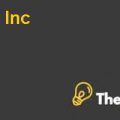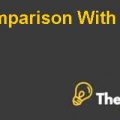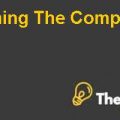Introduction
The measures adopted both in Europe due to the financial crisis have mainly focused on the requirement to stabilize the financial system. The management of Banks, hedge funds, rating agencies, supervisors or central banks have been questioned and analyzed in depth in many instances; however, auditors have not been questioned about the responsibilities.
It is noted that many banks have sustained huge losses from 2007 to 2009 on the positions they had held both on and off balance sheet. It is difficult for many citizens and investors to understand how auditors could give clean audit reports to their clients (in particular banks) for those periods (DIRECTIVE OF THE EUROPEAN PARLIAMENT AND OF THE COUNCIL , n.d.).
It is important to note that in a crisis where €4 588.9 billion of taxpayer money was committed to support banks between October 2008 and October 2009 and where such aid accounted for 39% of EU 27 GDP in 2009. All components of the financial system need to be improved (DIRECTIVE OF THE EUROPEAN PARLIAMENT AND OF THE COUNCIL , n.d.).
Robust audit is the key to re-establishing trust and market confidence. It contributes to investor protection by providing easily accessible, cost-effective and trustworthy information about the financial statements of companies. It also potentially reduces the cost of capital for audited companies by ensuring more transparency and reliability of financial statements (DIRECTIVE OF THE EUROPEAN PARLIAMENT AND OF THE COUNCIL , n.d.).
It is also important to stress that auditors are entrusted by law to conduct statutory audits. This instrument responds to the fulfillment of a societal role in offering an opinion on the truth and fairness of the financial statements of the audited entity; the latter in turn are able to enjoy limited liability and/or the possibility of providing services in the financial sector (DIRECTIVE OF THE EUROPEAN PARLIAMENT AND OF THE COUNCIL , n.d.).
The current Commission proposal on the amendments to the Statutory Audit Directive will coexist with a Proposal of a Regulation on the specific requirements on the statutory audit of public-interest entities. The two proposals are part of the ongoing regulatory reform in various domains of the financial sector (DIRECTIVE OF THE EUROPEAN PARLIAMENT AND OF THE COUNCIL , n.d.).
As audit provides comfort on the veracity of financial statements, it remains one of the primary building blocks of financial stability. Other general initiatives that are being worked upon such as corporate governance, accounting and credit ratings are complementary to this proposal. Neither do they duplicate nor overlap with each (DIRECTIVE OF THE EUROPEAN PARLIAMENT AND OF THE COUNCIL , n.d.).The Impact of the EU Audit Reform Legislation in the Luxembourgish Audit Legal Order Case Solution
CONSULTATION OF THE INTERESTED PARTIES
The Commission consulted on 13 October to 8 December 2010. There were 700 responses received from various stakeholders who included profession, supervisors, academics, companies, government subsidiaries, professional bodies and individuals were received. There were some who were ready to accept change while other resisted it. Small and medium sized firms had the view that the recent financial crisis exposed the financial systems and the audit controls associated with it (EUROPEAN COMMISSION , n.d.).
Stakeholders
87% of replies were provided by the European Union member states. The consultation involved either pan European groups or world-wide. Respondents included world-wide interests which include internationally operating audit firm networks and associations. Among the EU wide stakeholders, these were primarily European associations representing the interest of companies (preparers).
GENERAL VIEWS
There is general acceptance of the green paper. There exists an expectation gap between the scope of audit and the people perception of what the audit is. Therefore, it is important to improve transparency on the results of the audit to lower the expectation gap. It is also important to mould the work according to the requirement of stakeholders. The stakeholders confirm the societal role of auditors; however, they insist that it needs further clarification (EUROPEAN COMMISSION , n.d.).
It is also suggested that there is a role of auditors should be consistent with the requirement of the general public by improving audit reporting and disclosure to add value to the audit. It is considered that the current legal framework is not sufficient to safeguard auditor independence, therefore, structural changes are necessary (EUROPEAN COMMISSION , n.d.)...................................
This is just a sample partial case solution. Please place the order on the website to order your own originally done case solution.











